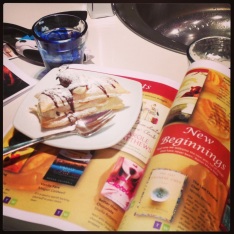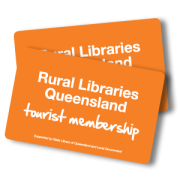Promote the new book in the collection = easy.
Promote connections for readers between the new book and several others in the collection as well as authors’ sites and community connections = that’s getting towards great readers’ advisory.
So that I can develop my RA abilities I’ve been developing a couple of programs where I learn as I go, and equally as importantly – I’m collaborating with others on these programs just as I’m collaborating on this project with Jo.
The first – booktalks by librarians (with some notes from Ontario PLA fyi)
- the opportunity to handsell a lot of related books at the same time to our community (related by various appeal factors and themes),
- create a reading map to complement the booktalk so the readers take something away from the event – in print and online, and
- the opportunity to collaborate with Sally Pewhairangi from Waimakariri District Libraries (we wanted to work together on something. we met up in Brisbane after NLS6 and brainstormed this. we’re skyping, working on a wiki, emailing. it’s such a great opportunity to work with Sally).
We’ve both read a stack of books (finding them through personal knowledge, our catalogues, GoodReads, blogs, articles..) and we’re sorting them into themes.
I’ll present the booktalks. Sally’s been creating the most amazing reading map.
The reading map, to me, is as important as the booktalk because it is the resource people can refer to when they want another book to read. Rather than be limited to the five read-alike books that I could immediately summon, they will be treated to a smorgasbord of dozens, all in appeal factors and themes and available in different formats. We’re working on tweetable quotes and links and downloads on authors’ sites. We’re investigating online presentation methods which enable readers to link back to library catalogues.
Before going to Auckland I knew nothing whatever about reading maps. I presumed they were lists that answered the question ‘what will I read next?’ in the simplest possible way in print. But from talking with Sally, and learning from Paul Brown I have discovered that they ‘are a multifaceted tool which offers fuller and more rewarding encounters between the reader and literature than our industry standard book recommendation and/or Top 5 List.’ (Paul Brown on Finding Heroes)
I learned that ‘It’s the stuff around the stuff that’s important.’ ‘Contextual readers’ advisory, intelligent bundling and the remix reader’ is the big thing in RA, which Paul revealed to Information Online 2013 delegates in Brisbane. Read more there or here: Paul_Brown_Contextual_RA.
Sally and Paul are collaborating on a reading map for 1Q84 that I know is going to be awesome. I’m learning so much from working with Sally on ours. I’ve read more widely and discovered more connections between books. It’s like Six-Degrees-of-Kevin-Bacon (haha). I feel more confident in my ability to recommend books to people.
Will you consider booktalking and reading maps in your library programming? Do you offer these already? What benefits do you see? Do you make connections with community groups for them? I would love to hear all about it!



You must be logged in to post a comment.